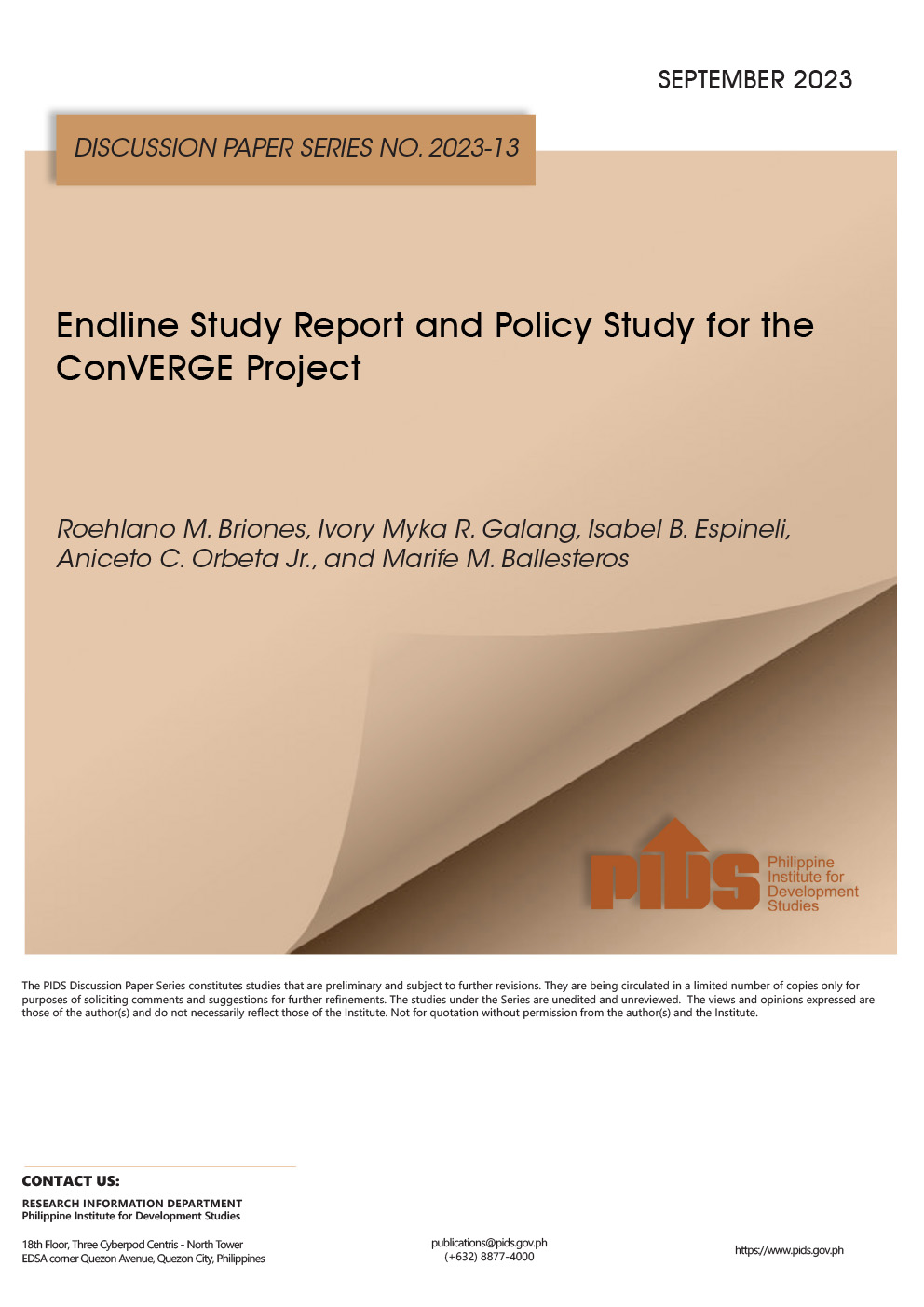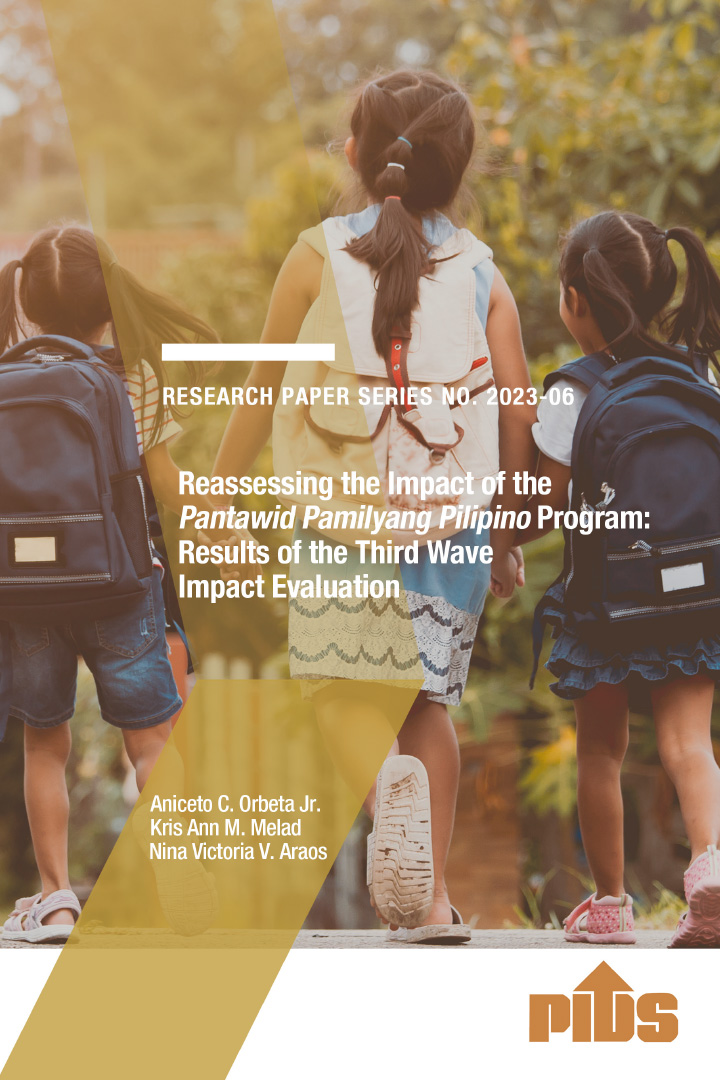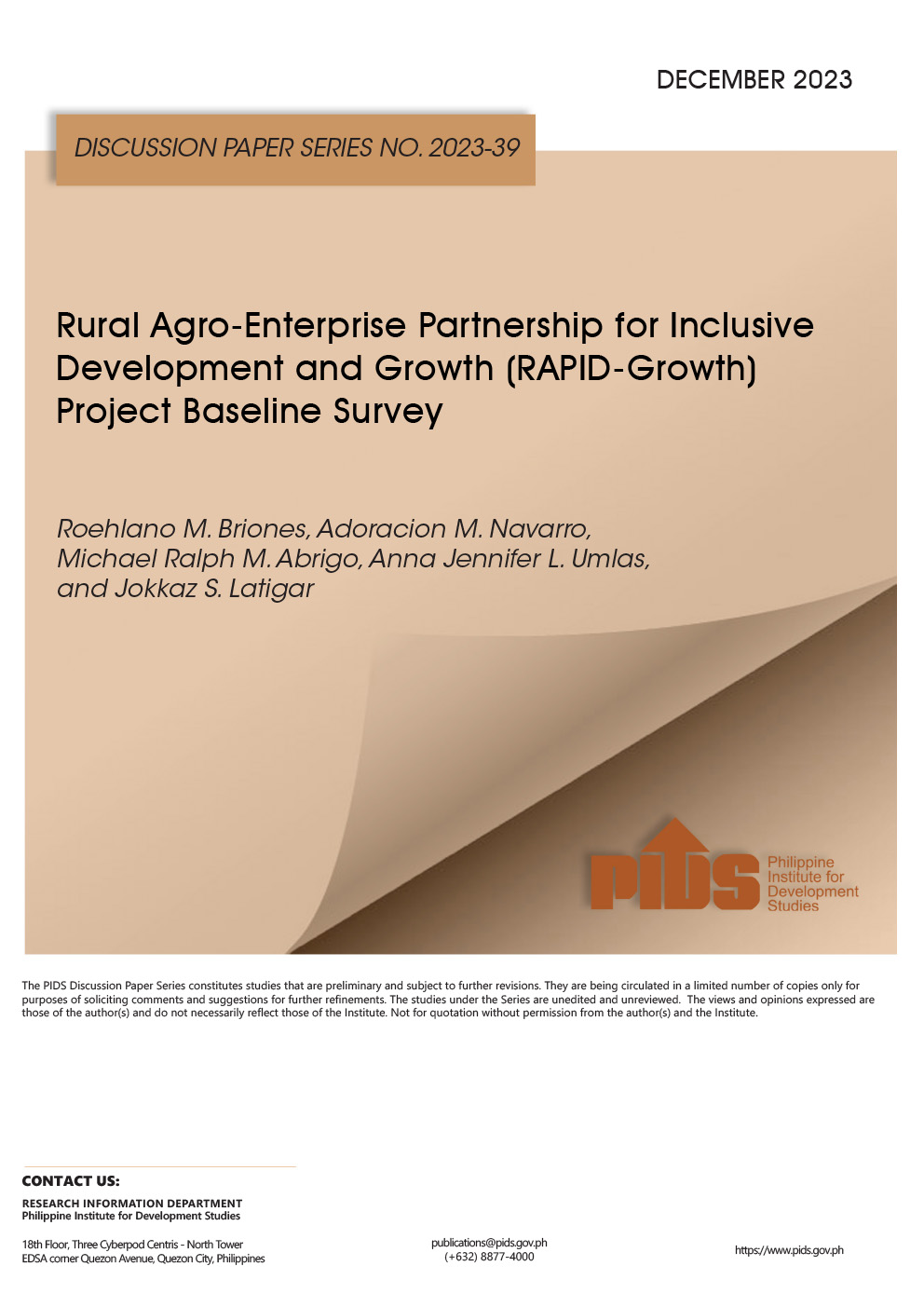State think tank Philippine Institute for Development Studies (PIDS) has been tapped by the Aquino administration, through the National Economic and Development Authority (NEDA), to lead a PHP300-million research project that will conduct process assessments and impact evaluations of key government programs.
The project, funded by the General Appropriations Act (GAA) of 2014, seeks to strengthen the Aquino administration's reform agenda by promoting accountability in government, under a new initiative led by Socioeconomic Planning Secretary Arsenio M. Balisacan, NEDA director-general, and Secretary Florencio B. Abad of the Department of Budget and Management (DBM).
"Impact evaluation strengthens accountability to taxpayers and donors by providing a clear measure of the effects of a program on the beneficiaries' lives. Determining what strategies and interventions work and what needs to be fine-tuned or scrapped will help government design better programs and do more to alleviate poverty," PIDS President Gilberto M. Llanto said.
The Institute's focus on impact evaluation is also in response to policy research directions for the year set by Secretary Balisacan, who is the chairman of the PIDS Board of Trustees.
PIDS' mandate under the GAA includes building capacity on monitoring and evaluation for NEDA and DBM officials and staff. To get the project underway, PIDS conducted a training on impact evaluation on January 6 to 9 that covered evaluation design, data generation, and estimation of impact, with focus on the theoretical and practical aspects of impact evaluation methodologies. PIDS Senior Research Fellows Aniceto C. Orbeta and Jose Ramon G. Albert, then director-general of the National Statistical Coordination Board, conducted the training which was attended by staff members of PIDS, NEDA, and DBM.
The GAA lists specific programs identified by the NEDA for evaluation by PIDS, namely, the National Greening Program, Reforestation Program, Resettlement Program, irrigation projects, farm-to-market road projects, Kapit-Bisig Laban sa Kahirapan- Comprehensive Integrated Delivery of Social Service Project, and other programs that may be selected by the government's socioeconomic planning arm. The Institute has also identified other projects to evaluate, encompassing agriculture support services, health and education, infrastructure, fiscal incentives, disaster management, trade agreements, and even judicial services.
Llanto led a planning workshop last February 19 to 20 for the presentation and critiquing of the impact evaluation proposals developed by in-house research experts of the Institute, the top social policy think tank in Southeast Asia and one of the best in the world according to the 2013 Global Go Think Tank Report released by the Think Tanks and Civil Societies Program of the University of Pennsylvania.
PIDS drew inputs from NEDA's agriculture, infrastructure, and monitoring and evaluation staff, and from DBM. Representatives of government agencies that are knowledgeable about the programs to be evaluated, such as the National Disaster Risk Reduction and Management Council, Philippine Crop Insurance Corporation, Department of Transportation and Communications, Department of Trade and Industry, Department of Finance, Department of Education, Department of Energy and Department of Environment and Natural Resources, lent their expertise in appraising the proposals. Experts from the AIM Policy Center and Ateneo Law School also participated in the planning workshop.
The project, funded by the General Appropriations Act (GAA) of 2014, seeks to strengthen the Aquino administration's reform agenda by promoting accountability in government, under a new initiative led by Socioeconomic Planning Secretary Arsenio M. Balisacan, NEDA director-general, and Secretary Florencio B. Abad of the Department of Budget and Management (DBM).
"Impact evaluation strengthens accountability to taxpayers and donors by providing a clear measure of the effects of a program on the beneficiaries' lives. Determining what strategies and interventions work and what needs to be fine-tuned or scrapped will help government design better programs and do more to alleviate poverty," PIDS President Gilberto M. Llanto said.
The Institute's focus on impact evaluation is also in response to policy research directions for the year set by Secretary Balisacan, who is the chairman of the PIDS Board of Trustees.
PIDS' mandate under the GAA includes building capacity on monitoring and evaluation for NEDA and DBM officials and staff. To get the project underway, PIDS conducted a training on impact evaluation on January 6 to 9 that covered evaluation design, data generation, and estimation of impact, with focus on the theoretical and practical aspects of impact evaluation methodologies. PIDS Senior Research Fellows Aniceto C. Orbeta and Jose Ramon G. Albert, then director-general of the National Statistical Coordination Board, conducted the training which was attended by staff members of PIDS, NEDA, and DBM.
The GAA lists specific programs identified by the NEDA for evaluation by PIDS, namely, the National Greening Program, Reforestation Program, Resettlement Program, irrigation projects, farm-to-market road projects, Kapit-Bisig Laban sa Kahirapan- Comprehensive Integrated Delivery of Social Service Project, and other programs that may be selected by the government's socioeconomic planning arm. The Institute has also identified other projects to evaluate, encompassing agriculture support services, health and education, infrastructure, fiscal incentives, disaster management, trade agreements, and even judicial services.
Llanto led a planning workshop last February 19 to 20 for the presentation and critiquing of the impact evaluation proposals developed by in-house research experts of the Institute, the top social policy think tank in Southeast Asia and one of the best in the world according to the 2013 Global Go Think Tank Report released by the Think Tanks and Civil Societies Program of the University of Pennsylvania.
PIDS drew inputs from NEDA's agriculture, infrastructure, and monitoring and evaluation staff, and from DBM. Representatives of government agencies that are knowledgeable about the programs to be evaluated, such as the National Disaster Risk Reduction and Management Council, Philippine Crop Insurance Corporation, Department of Transportation and Communications, Department of Trade and Industry, Department of Finance, Department of Education, Department of Energy and Department of Environment and Natural Resources, lent their expertise in appraising the proposals. Experts from the AIM Policy Center and Ateneo Law School also participated in the planning workshop.











